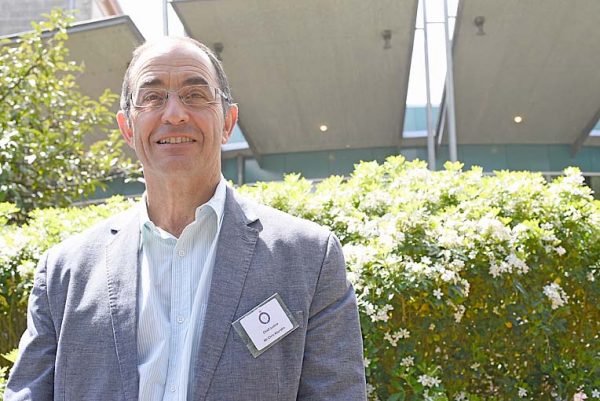
SOUTH East solicitors and stakeholders in the judicial system have warned South Australian Chief Justice Chris Kourakis against funding cuts to courts in the Limestone Coast.
Justice Kourakis visited the Mount Gambier Courthouse on Friday to discuss a round of “unprecedented” cuts to Courts Administration Authority (CAA) funding, which could result in reduced services in the South East.
Mount Gambier was the last regional stop for Justice Kourakis – who has held statewide consultations over the last two weeks with communities that may be affected by potential budget cuts.
He opened the session by stating the cuts were “unprecedented”, revealing a decision had not been made about where they would impact.
“In 2015, we made tentative decision on areas to cut funding and it was probably fair that we received backlash for making those decisions before consulting,” Justice Kourakis said.
“This time we’re here to find out what funding cuts would least impact the community.”
Justice Kourakis said the authority was in a difficult position, admitting any cuts were going to have an impact on the entire system.
“We have a few options – we could cut across the board or look at particular locations and shut them down,” he said.
“The problem is when you centralise, waiting times increase across the board.”
The remaining satellite courts in Millicent, Naracoorte and Bordertown were a hot topic of discussion at the consultation.
South East solicitor Kate Annells was quick to outline the challenges people living in those towns already faced due to transport restrictions.
“I have had a number of clients who have had a real difficulty accessing transport from those places to come to court in Mount Gambier and attend matters,” Ms Annells said.
“A lot of clients have lost their licence and do not have family or friends who can give them lifts, so they struggle to make their court matters or scheduled appointment with their lawyers.”
“There is no public transport, which creates problems.”
She also highlighted the satellite courts lack of updated technology.
“There are no audio-visual link-ups available in those centres, so you would have to outsource to other departments to access those services,” Ms Annells said.
John Kyrimis has practiced in the region for over 20 years and said the further closure of satellite courts would impact on other departments.
“You would have a whole lot of extra costs for other services,” Mr Kyrimis said.
“For example, if a defendant cannot make it to court because of transport difficulty, a warrant for arrest would be issued, which would have to be executed by the police.”
Justice Kourakis flagged the district court as an area where cuts have been made in the past to meet financial requirements.
However, resident Magistrate Teresa Anderson spoke out strongly in opposition to any cuts to the regional circuits.
“We only have a district court judge three times a year for four weeks and I urge you to look harder when assessing the load on the district court,” Magistrate Anderson said.
“While there was only three defendants arraigned in the most recent circuit, you have to remember there is a huge backlog in the Magistrates Court due to the new major indictable legislation.”
After around an hour, the consultation finished and Justice Kourakis advised those in attendance they would return to outline any cuts that would be made to the region.







